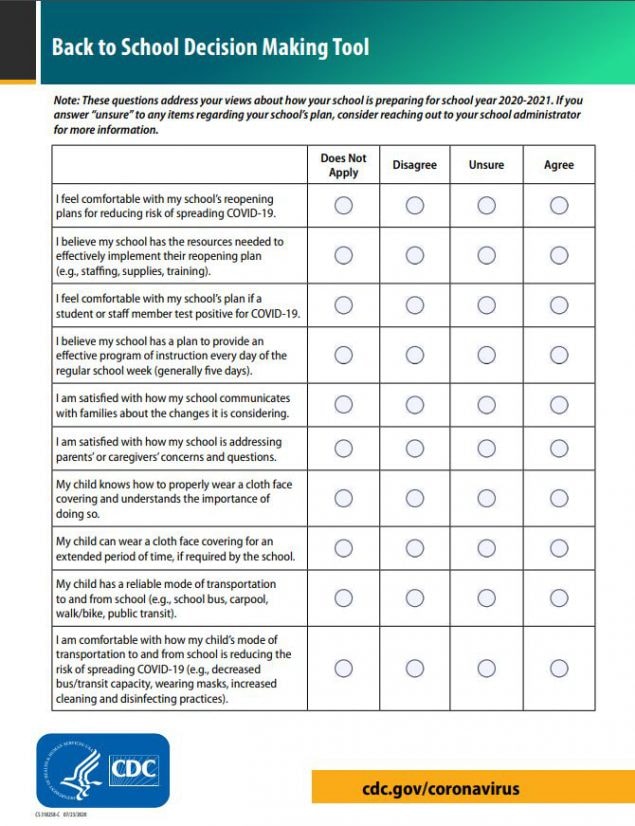The CDC published a School Decision-Making Tool for Parents,
Caregivers, and Guardians that may be helpful
(updated July 23, 2020)for deciding if your child should return to campus or stay on remote learning. We all know and agree that school is a vital part of each child’s
growth and development. The current world situation makes this decision one
that requires some forethought on our part as parents and caregivers. We will
be considering many factors, such as individual preferences, health concerns,
work situations, and school considerations. When making decisions about school
for your family, there are many things to think about beyond academics, such as
access to social services and social-emotional
support from peers and educators. There are also your personal individual
preferences, health concerns, work situations, and school considerations.
As you are making decisions about your child(ren) returning to
school, it is important to consider the full spectrum of risks involved in both
in-person and virtual learning options. Parents, guardians, and caregivers
should weigh the relative health risks of COVID-19 transmission from
in-personal instruction against the educational, social-behavioral, and emotional
risks of providing no in-person instruction when deciding between these two
options.
We know that certain underlying medical conditions can increase severe illness from
COVID-19. Additionally, children who are medically complex, who have neurologic, genetic, metabolic
conditions, or who have congenital heart disease might be at increased risk for
severe illness from COVID-19, compared to other children. Parents and guardians
should consider whether other household members are at increased risk of severe illness from COVID-19 when making decisions about
which activities to resume including a child’s return to in-person instruction.
If you, your child, or a household member are at increased risk for severe illness from COVID-19,
you will need to weigh the benefits, risks, and feasibility of the educational
options available.
Aside from a child’s home, no other setting has more influence on
a child’s health and well-being than the school. The in-person school
environment not only provides educational instruction, but supports a child’s
social and emotional skills, safety, speech, mental health, and opportunities
for physical activity. The CDC has published a Decision Making Tool to help families with this important
task. This tool is designed to help you weigh the risks and benefits of
available educational options in making the decision about sending your child
back to school.
It is important to take the information learned and compare it to
the UA Return to Campus Guide in making your decision for your family.
Please take a moment to read the article in its entirety here. No matter how you decide, Union Academy is committed to serving your child(ren).




